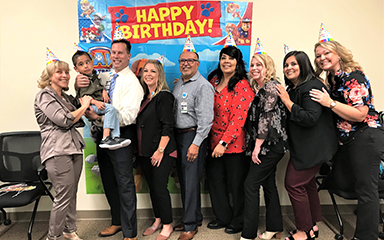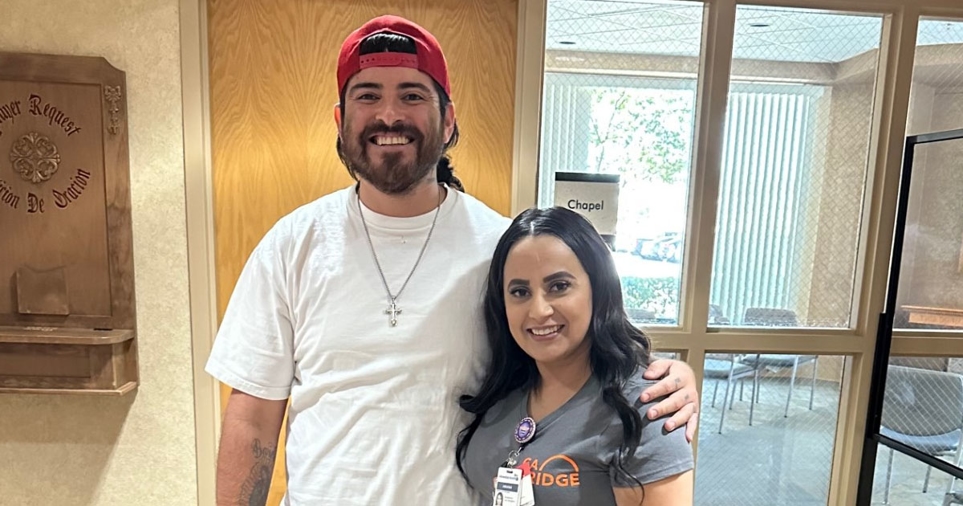Keeping the Beat
May 13, 2022

Amir Solhpour, MD, helps Barbara Thompson with new options for repairing heart valves and irregular heartbeats.
After learning that she had atrial fibrillation, or A-fib, a rapid heart rhythm that can lead to life-threatening blood clots, Barbara Thompson didn’t feel ready for traditional open heart surgery.
“I didn’t want invasive surgery, and I was afraid my body wouldn’t respond well to extensive recovery,” she says.
Luckily, she had options.
With the blessing of her doctor, the 75-year-old was able to improve her quality of life and avoid invasive surgery thanks to two new procedures offered at Adventist Health Glendale. Thompson visited Amir Solhpour, MD, director of the Structural Heart Disease Program at Adventist Health Glendale, who explained options and provided guidance on how to treat A-fib.
“The consultations were so informative. Dr. Solhpour explained my options and told me all the facts,” she says. “I felt welcome to ask further questions before I made my decision.”
Thompson opted to have two procedures. First, she had a MitraClip device implanted to close a leaky mitral valve, a necessary step to repair the portion of her heart that was causing her shortness of breath. Then, Dr. Solhpour implanted a Watchman device to minimize the chance that blood clots would form in her heart and ultimately cause a stroke.
Improving quality of life for older patients
With shorter recovery than traditional heart surgery, minimally invasive procedures such as the MitraClip and the Watchman are ideal for older patients, doctors point out. Often, older patients have additional health problems such as heart failure, as well as frailty, which do not make them good candidates for traditional open heart surgery. Because minimally invasive surgery means smaller incisions, less pain and shorter recovery time, it can improve the quality of life for people well into their 90s.
After each of her procedures, spaced two months apart, Thompson went home the next day. “They took excellent care of me,” she says.
A growing list of options
The MitraClip and the Watchman are part of a growing suite of minimally invasive heart procedures that Adventist Health Glendale surgeons are using to help people feel better, faster. The hospital has expanded its number of treatment options in the past two years, allowing more people to seek innovative solutions that are not always available elsewhere in the region, and get back to leading full lives more quickly. “Many patients see outcomes that are as good as surgery, but without the downtime,” Dr. Solhpour says.
“I used to feel tired so easily,” Thompson says. Since her procedures, she has more energy and can enjoy spending time with her husband and friends again. She remains thankful to Dr. Solhpour for sharing his expertise when it came to newer minimally invasive procedures. “He was phenomenal,” she says.
Meet the cardiovascular team
Adventist Health Glendale is one of America’s 100 Best Hospitals for cardiac care, coronary intervention, coronary bypass surgery, and treatment of heart attack and heart failure. These awards were given by Healthgrades, an organization that evaluates hospital quality based on patient outcomes.
Related articles

Young clinic patient receives surprise birthday party in Reedley
June 21, 2019

Adventist Health Lodi Memorial cook Juan Contreras loses 30 pounds by making healthy changes
May 31, 2019

Valley Man Finds Addiction Healing and Hope at Adventist Health Hanford
July 18, 2023